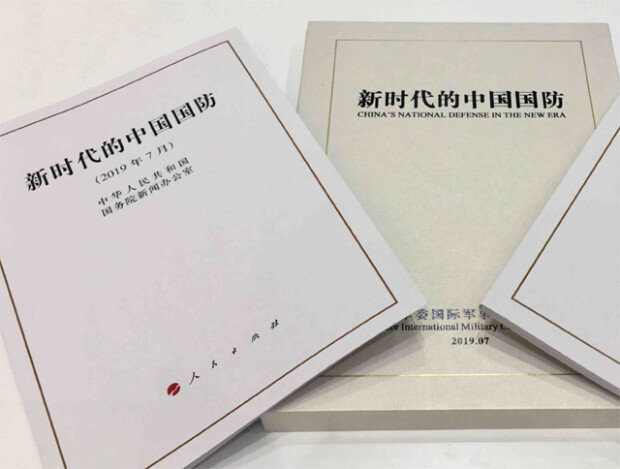China’s defense white paper makes mention of THAAD deployment in S. Korea
China’s defense white paper makes mention of THAAD deployment in S. Korea
Posted July. 25, 2019 07:35,
Updated July. 25, 2019 07:35

China has raised issue with the United States’ deployment the THAAD antimissile defense system in South Korea in its defense white paper for the first time. The white paper claimed that the THAAD deployment “gravely damaged” the strategic balance and security interest in the Asia-Pacific region.
China’s defense ministry released the 90-odd-page white paper in question on Wednesday. Since the first issuance in 1988, China has published its defense white paper usually every two years. This year’s white paper, the 10th edition, was released for the first time in four years. The 2015 edition was about 20 pages long, while this year’s edition is much longer, explicitly highlighting Beijing’s claims on various security issues involving the THAAD, the inter-Korean issues, the United States, Japan, Australia and Taiwan.
Nothing that the world’s economic and strategic center is moving toward the Asia-Pacific region, the white paper said that “games” played by great powers brought uncertainties to regional security, accusing the United States of “adding complexity” to the region by strengthening military alliances and expanding military deployment and intervention.
China also expressed its intention to play a leading role in the inter-Korean issues. “Despite positive progress made on the Korean Peninsula, there remain uncertainties,” the white paper said. “China is playing a politically constructive role in troubled regions such as the Korean Peninsula.”
China was also wary about Japan and Australia. “Japan is making brisk military moves by changing its military security policy in order to circumvent the post-war regime. Externally oriented military moves are seen,” the white paper said. It also viewed Australia as emerging security player in the region by strengthening its alliance with the U.S. Regarding the Taiwan issue, the white paper again targeted Washington, noting that Beijing maintains its policy of seeking peaceful reunification and "one country, two systems."
Ji-Sun Choi aurinko@donga.com






